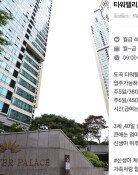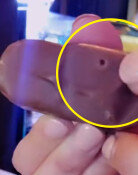Trump to make three-day state visit to Japan from Saturday
Trump to make three-day state visit to Japan from Saturday
Posted May. 24, 2019 08:10,
Updated May. 24, 2019 08:10
U.S. President Donald Trump will make a three-day trip to Japan from May 25 that will be the first state visit by a foreign leader to Japan since Emperor Naruhito was crowned on May US President Donald Trump will visit Japan on August 25-28. It is the first state after the era of "Reiwa" was held as the day of the Emperor Naruhito. President Trump will hold a meeting with Japanese Prime Minister Shinzo Abe on golf and sumo walks, embarking on a maritime escort for the Self-Defense Forces, and attending a dinner hosted by the King. Prime Minister Abe, who blatantly "passing" South Korea, has peculiar pro-diplomatic diplomacy, raising concerns that the United States may be hard-pressed on Japan's allegations on the issue of Korea-Japan relations.
1. Trump is scheduled to play golf and watch a sumo game with Japanese Prime Minister Shinzo Abe, get aboard a Japanese Maritime Self-Defense Force vessel, and attend a state dinner hosted by the Japanese emperor. There are concerns that as Abe, who has been blatantly neglected South Korea, gets closer to the United States to have Washington lean toward Tokyo over history issues with Seoul.
Trump will arrive in Japan on Saturday night. He will play golf with the Japanese prime minister in Chiba near Tokyo on the following morning before watching a sumo game in the afternoon. The U.S. president will meet with Emperor Naruhito on the third day of his visit.
Major agendas for the bilateral summit to be held on next Monday include the North Korean nuclear issue, Japanese abductees in the North, responses to China’s military expansion, and U.S.-Japan trade negotiations. At working-level trade talks that started last month, the U.S. demanded that Japan lower tariffs on American agricultural products, while Japan rejected it. An official at the U.S. administration told reporters in Washington on Wednesday that Trump and Abe will make a “very interesting” announcement.
The Japanese daily Mainichi Shimbun reported that Tokyo had been seeking to invite Trump on a state visit since last fall. According to the newspaper, Abe asked his cabinet to study ways to make the U.S. president “feel good.” It was Abe’s idea to take Trump to a sumo match. After viewing the game, the two leaders will reportedly dine at a Japanese restaurant in Roppongi, Tokyo. The daily reported that the restaurant grilled seasonal seafood and vegetables right in front of customers and that Abe aims to express his friendliness to Trump.
Abe’s great efforts to please Trump are seen as his move to show off a solid U.S.-Japan alliance ahead of the July parliamentary elections. A stronger alliance with Washington works in favor of the ruling Liberal Democratic Party by garnering support from conservative voters.
Japan’s Kyodo News reported that attention is being paid to how Trump will greet the Japanese emperor. In 2009, then U.S. President Barack Obama made a deep bow to the Japanese monarch, facing strong criticism in the U.S. for being too humble.
2. Japan is playing not only in the United States, but also in China, North Korea and Russia. Sino-Japanese relations, which had been cooled by the nationalization of the Senkaku Islands (Chinese name Diaoyu Island) in September 2012, are rapidly being resolved with the 40th anniversary of the Sino-Japanese Peace Friendship Treaty. Prime Minister Abe will visit China next month, and Chinese President Hu Jintao will visit Japan during the G20 summit next month.
Abe recently called on North Korea to disclose "unconditional" summits. Last year, it was changed 180 degrees from emphasizing 'maximum pressure'. "The attitude of Prime Minister Junichiro Koizumi changed as Mr. Trump suggested that the North Korea - Japan summit was held at the North - US summit in Vietnam in February, and Kim Jong - "He said. Relations with Russia The Japanese government is also considering Russia to refrain from mentioning the territorial rights of the Kurils (northern territories) to establish a peace treaty.
On the other hand, following the ruling of the Supreme Court on October 30 last year, Prime Minister Abe has avoided mentioning Korea as much as possible. Earlier this month, when Pyongyang fired a missile, Prime Minister Abe explained the telephone conversation with President Trump and said he only talked about the US response and subtracted South Korea.
lovesong@donga.com
Headline News
- Med professors announce intention to leave hospitals starting Thursday
- Bridge honoring Sgt. Moon Jae-sik unveiled in Pennsylvania
- Chief of Staff Chung tells presidential secretaries to stay away from politics
- US FTC bans noncompete agreements
- N. Korea launches cyberattacks on S. Korea's defense companies







